
900 E. Broad St., Room 511
Richmond, VA 23219
Monday-Friday 8 a.m. - 5 p.m.
Code Refresh
Overview
The Richmond 300 Master Plan calls out a re-write of the zoning ordinance as one of six "Big Moves" we need to expand equity, improve sustainability, and beautify our City. Code Refresh is our answer to that call; an overhaul of an outdated zoning code to meet the needs of Richmonders today, tomorrow, and for the next generation.
What does that actually mean? Basically, we're taking a close look at our current zoning, last written in the mid-1970s, to determine what does and does not suit our needs. This means remapping every single parcel in the City and devising new zoning categories and strategies which will advance our goals for thriving neighborhoods and thriving communities.
This kind of overhaul isn't quick, it takes time to pull it off with the thought and intention it deserves. Please learn a bit more about Code Refresh below, and get involved! We welcome and value your input, and thank you for taking the time to share.
Share Your Thoughts
The Code Refresh Draft Two maps and use regulations are now live! Residents are encouraged to leave comments on both the maps and use regulations using the interactive versions, below. We recommend you access these via desktop for the best user experience. If you are having difficulty navigating the online map, you can submit feedback HERE.
- Draft Two Map (Interactive)
- Draft Two Zoning Regulations (Interactive)
- Draft Two Map (PDF)
- Draft Two Zoning Regulations (PDF)
- November 2025 Open House Boards (PDF)
Comment Deadline Extended to March 1, 2026
Please leave your comments on the draft map and use regulations by 11:59pm on Sunday, March 1
Key Changes
The City has made a number of key changes between Draft One and Draft Two of the zoning rewrite. The below breaks down some of these key changes, categorized by the goals which they are meant to achieve.
- New homes can't take up as much of the lot.
- Heights and setbacks should complement what's already on the block.
- Bigger apartment buildings are allowed only in areas that already have bigger buildings
- If someone splits a lot, new homes must face the main street.
- Transitional rules for mixed-use buildings next to existing homes are strengthened.
- Upper-floor step-backs are required so taller buildings don't loom over the street.
- Small neighborhood conveniences, like markets and restaurants, can go in at certain lots and intersections.
- Development standards residents requested are added, including more trees, wider sidewalks, and more space for people walking and rolling.
- An additional home can be added on the same lot — if you preserve what's there.
- Allowable heights are matched to what safety and building codes already allow (not beyond).
Public Engagement Opportunities
In addition to virtual, the City is hosting a number of in-person engagements for residents to speak with City planners. Share your thoughts, ask questions, and get involved!
- Zoning Advisory Council Meeting: Wednesday, March 18, 2026 from 4-6:30pm
- City Hall, 5th Floor Conference Room | 900 E. Broad St.
- AGENDA
Zoning Advisory Council (ZAC)
The Zoning Advisory Council includes a diverse group of Richmonders who are helping to guide City planners on the overall direction of the zoning ordinance. This is not a decision-making body, but a volunteer group of citizens who will be the voice of Richmonders in the room. Council members will also assist at community engagement events and spread the word among the community about the zoning code refresh.
ZAC Meetings
The next ZAC meeting will take place on March 18, 2026 from 4 - 6:30pm in the 5th Floor Conference Room at City Hall (900 East Broad St.)
What is the zoning code, and why should I care?
The zoning code is a legal document that describes what may be built on a piece of property. Code Refresh is a rewriting of Richmond’s zoning ordinance; rewriting the zoning ordinance is identified in the Richmond 300 Master Plan as one of the Big Moves. A re-write process means developing new zoning categories and descriptions, and then mapping those categories to every parcel in the city. The last citywide update to the zoning code was in 1976. Since then, the zoning code has had piecemeal updates to accommodate the city’s changing needs throughout the years.
Code Refresh gives the City the tools it needs to further key policy objectives that impact Richmonders, including the need for housing, schools, and other community resources. This process is also an opportunity to understand how Richmond's historic zoning has resulted in many of the divides and disparities our City sees today and, through the rewrite, correct those policies so we can build a future Richmond with opportunities for ALL residents.
Zoning shapes our City by deciding:
- Uses that are allowed on certain properties
- The height and bulk of buildings
- Relationship between buildings and the street
- Impact on housing affordability by determining how much housing can be built and where
If you live or work in Richmond, visit the city, or if you own property here, zoning will impact you.
What can zoning do for Richmond? What can’t zoning do?
As the city grows, the zoning ordinance is a tool in helping guide and direct that growth. Our current zoning ordinance separates uses into different districts with limited opportunity for mixed-use. To align with Richmond 300’s equity and sustainability goals, the refresh of the zoning ordinance will move the city from distinct separation of uses to allowing for more mixing of uses and incorporating more form-based elements (e.g., requirements about how the building is constructed rather than what uses are allowed in the building). This process generally creates neighborhoods that are less car-centric and more walkable.
By aligning the zoning ordinance with Richmond 300’s goals, the refresh allows for:
- More efficient land use
- Housing options and affordability
- Preservation of character, history, and natural resources
- Creation of mixed-use, walkable neighborhoods
Zoning is only one tool to implement plans for a community. Zoning has the power to determine what is built where and to set limited requirements for new development (e.g., require some amount of green space). Direct investments by the City, on the other hand, can allot funding for more specific interventions (e.g., planting trees or building new parks).
What’s the timeline for this project? When can we expect to offer input, and when will decisions be finalized?
The City of Richmond, with the support of a consultant team led by Code Studio and Brick & Story, embarked on the Code Refresh process in the spring of 2024. In the winter of 2024, the team shared its first product with the public: an analysis of existing and historic urban and architectural form known as a pattern book.
Using that analysis, the team created a framework for the existing zoning ordinance and the proposed zoning districts in early 2025. Once the general districts were drafted, the team then mapped them across the entire city. In the summer of 2025, the public was invited to offer feedback on the first draft of the zoning map. With the public’s comments in mind, the City updated the zoning map in the fall of 2025. The project webpage’s “Key Changes” section spotlights the key changes between draft one and two of the zoning rewrite.
The second draft of the neighborhood-specific maps and development standards are available online for public comment through March 1, 2026. We recommend you access these via desktop for the best user experience.
How are you engaging stakeholders, and what feedback are you receiving?
The City, in partnership with Brick & Story, is deploying a mix of traditional and non-traditional tools to engage Richmonders in the Code Refresh process. Those tools include:
- Zoning Advisory Council (ZAC): a diverse group of Richmonders who help guide the city and the consultant on the direction of the zoning ordinance. This is not a decision-making body, but a volunteer group of citizens who represent Richmonders in the room.
- Working Groups: Volunteers who assist the Code Refresh Zoning Advisory Council (ZAC) by reviewing elements of the proposed zoning ordinance through the lenses of the five topic areas from Richmond 300. The objective of these working groups is to determine what may be missing or inconsistent with the policies related to each topic area in the Code Refresh. These meetings are open to the public.
- Priority Stakeholder Roundtables: Small, focused discussions designed to facilitate open dialogue on a specific topic, allowing participants to share their experiences, priorities, and ideas in a collaborative setting. These roundtables were designed to create a space for historically underrepresented stakeholders, such as Latino residents, renters, African American residents, youth, low-income residents, and 9th District constituents, to share their perspectives on how zoning impacts them.
- Community Ambassador Program: Paid engagement opportunities for stakeholders to convene roundtable discussions with priority stakeholders. The application period for the Community Ambassador program has closed.
- Pop-ups: Tabling at community hubs across Richmond to decrease the barrier to entry. Pop-up engagements are useful tools in meeting stakeholders where they already are, and quickly collecting feedback or sharing information.
- Open House Series: An in-person, workshop-style event series to share major deliverables (pattern book, draft zoning framework, draft maps, consolidated code) with the public and solicit feedback.
- Panel Series: Partnered with the open house series, a convening of thought-leaders to discuss topics relevant to Code Refresh: the history of zoning (Sept 2024), affordable housing (Feb 2025), transportation and land-use (June 2025), and economics of housing (Nov 2025).
Thus far, the team has heard from Richmonders:
- The success of future zoning implementation ties directly to the implementation of related housing, transportation, economic, and climate policies.
- ADUs and tiny homes would be beneficial for expanding housing opportunities and flexibility
- Support in some neighborhoods for denser housing and mixed-use zoning that includes housing, shops, and grocery stores.
- Zoning should prioritize alternative transportation options, walkability, and create more mixed-use neighborhoods.
- Zoning should help address climate change impacts, with generational change in mind.
- Aging populations need walkable areas, better transportation, and access to grocery stores.
- The concentration of a single type of housing in certain areas is problematic, and zoning should allow for more diverse housing options.
- The availability of rental housing is limited, especially in desirable neighborhoods, and zoning could help address this issue by increasing and diversifying the supply.
- Zoning should reduce the need for special permits and streamline the process for creating housing options for all types of families.
Who are the primary decision makers in the Code Refresh process?
When the zoning code is finalized and consolidated, with the input of stakeholders and the ZAC, the proposed code will be reviewed by the Planning Commission and then voted on by the City Council.
What is the Zoning Advisory Council? How were people selected, and what is the Council’s role?
The Advisory Council is a diverse group of Richmonders who will help guide the city and the consultant on the direction of the zoning ordinance. This is not a decision-making body, but a volunteer group of citizens who serve as the voice of Richmonders in the room. Council members also assist at community engagement events and spread the word among the community about the zoning code refresh.
At the outset of the project, in the Spring of 2024, the City issued a call for applications to serve on the Advisory Council. From the application pool, the City selected 17 Richmonders to serve as volunteer representatives at the monthly convenings, ensuring representation from priority stakeholder communities and professional diversity.
What is a Community Ambassador? How were individuals selected to be an Ambassador?
A Community Ambassador is a stakeholder interested in making a positive impact and supporting city-wide engagement as part of the Code Refresh process. As part of the Community Ambassador program, they support the engagement team by convening roundtables of targeted stakeholders throughout 2025. Ambassadors have the opportunity to leverage their community networks to bring together stakeholders for a community conversation that the engagement team will facilitate.
A core element of engagement in 2025 is the use of stakeholder roundtables to have focused discussions with a wide range of stakeholders in Richmond, including priority groups like renters, youth/young adults, low-income households, African American residents, Latino residents, and other stakeholders who may not typically engage in civic processes and who would be interested in participating in a roundtable/focus group.
The City issued an open call for interested stakeholders to participate as Community Ambassadors. Those interested parties then attended an orientation call. Note that the application period for Community Ambassadors is closed.
How can this code help solve the affordable housing crisis in Richmond?
Code Refresh can allow for more density/higher buildings, allow for accessory dwelling units (ADUs), and create provisions on the level(s) of affordability required in new developments. These moves can create more housing units; by increasing the supply of housing, the zoning code can help alleviate some of the pressures pushing up housing prices.
However, a zoning ordinance on its own cannot solve the affordable housing crisis. Policy interventions and direct investments from the City can provide affordable housing subsidies, social services support, and first-time homebuyer credits.
How does Code Refresh prioritize pedestrian safety?
Our current zoning ordinance separates uses into different districts with limited opportunity for mixed-use. To align with Richmond 300’s equity and sustainability goals, the refresh of the zoning ordinance will move the city from a distinct separation of uses to allowing for more mixing of uses. This process generally creates neighborhoods that are less car-centric and more walkable.
How do zoning policies like height restrictions, setbacks, etc., affect transportation in Richmond?
Zoning policy plays a major role in shaping transportation systems because it directly affects where people live, work, and shop. Zoning laws that allow for higher-density development (e.g., multi-family housing, commercial centers) often lead to more compact communities. This makes public transportation more viable because people live and work closer together, which encourages walking, biking, and transit use.
Won’t more density and smaller setbacks make our urban environment even hotter (heat island effect)? How is Code Refresh accounting for the climate impacts of added development?
Higher density and smaller setbacks, while beneficial for creating walkable and transit-oriented areas, can exacerbate the heat island effect if not carefully managed. Code Refresh includes an Open Space (OS) district, which allows the City to reserve certain areas of Richmond for recreational open space (parks, playgrounds, sports fields, dog parks). Additionally, the proposed zoning code can incentivize or require developers to include green spaces in dense areas, ensuring a cooling effect in the urban fabric.
Adjacent to zoning policy, the City of Richmond’s work on sustainable transportation systems (like pedestrian-friendly streets, bike lanes, and efficient public transit) can reduce the number of cars on the road, which not only reduces greenhouse gas emissions but also lowers local air temperatures by reducing the heat generated by car engines and exhaust systems.
What are development standards and how are they included in the updated zoning code?
Development standards are the basic rules that control how land and buildings can be used and built. They set limits on things like building height, size, setbacks from property lines, parking, and landscaping. These standards help to ensure new development is safe, orderly, and compatible with surrounding properties. The proposed development standards are broken into seven categories:
- General provisions
- Multimodal access and mobility
- Vehicle access and mobility
- Transitions and screening
- Landscape
- Signs
- Lighting
The proposed development standards for the updated code are available online for public comment through March 1, 2026. We recommend you access these via desktop for the best user experience.
I have a comment/question specific to my neighborhood. How can I make sure it’s heard?
The most efficient feedback method is to leave a comment on the maps and use regulations. The second draft of the neighborhood-specific maps and development standards are available online for public comment through March 1, 2026. We recommend signing up to receive project updates by emailing [email protected]. This ensures that you hear about upcoming engagement opportunities. Attend an upcoming event to speak to the project team directly. If you’re unable to attend an event or have a pressing question, then you can reach out to the Planning & Development Review (PDR) team directly at [email protected].
Current Zoning Ordinance
Check out the current zoning ordinance:
Draft Pattern Book
- Part 1 - City Scale Analysis
- Part 2 - Neighborhood Scale Analysis
- Part 3 - Block Scale Analysis
- Part 4 - Building Scale Analysis
Code Refresh Draft One
Zoning 101 Webinar
The City of Richmond hosted a Zoning 101 Webinar Series to provide:
• The basics of zoning and its purpose
• How zoning decisions are made and who is involved
• The goals and expected outcomes of the #CodeRefresh initiative
• How you can get involved and provide input during the zoning rewrite process
Click HERE to view the webinar.
Looking Back and Moving Forward: A Panel Discussion
The City hosted a panel discussion on September 11th which featured local and national leaders discussing the basics of zoning, the history of zoning in Richmond, and how this update will impact the lives of Richmonders. Click HERE to watch the panel discussion.
Open Houses for the Draft Pattern Book and Zoning Districts Framework
The City hosted three open houses on February 26th & 27th (2025) to allow the public to engage with both planning staff and members of the Code Refresh consultant team to learn more about the draft pattern book, potential zoning districts, and the progress of the Zoning Code Refresh. Several boards were presented at the open houses and the public had the opportunity to provide feedback for each one.
Open Houses for the Draft Zoning Districts, Uses, and Map
The City hosted three open houses on June 25th & 26th (2025) to allow the public to engage with both planning staff and members of the Code Refresh consultant team to learn more about the draft zoning districts, uses, zoning map, and the progress of the Zoning Code Refresh. Several boards were presented at the open houses and the public had the opportunity to provide feedback for each one.
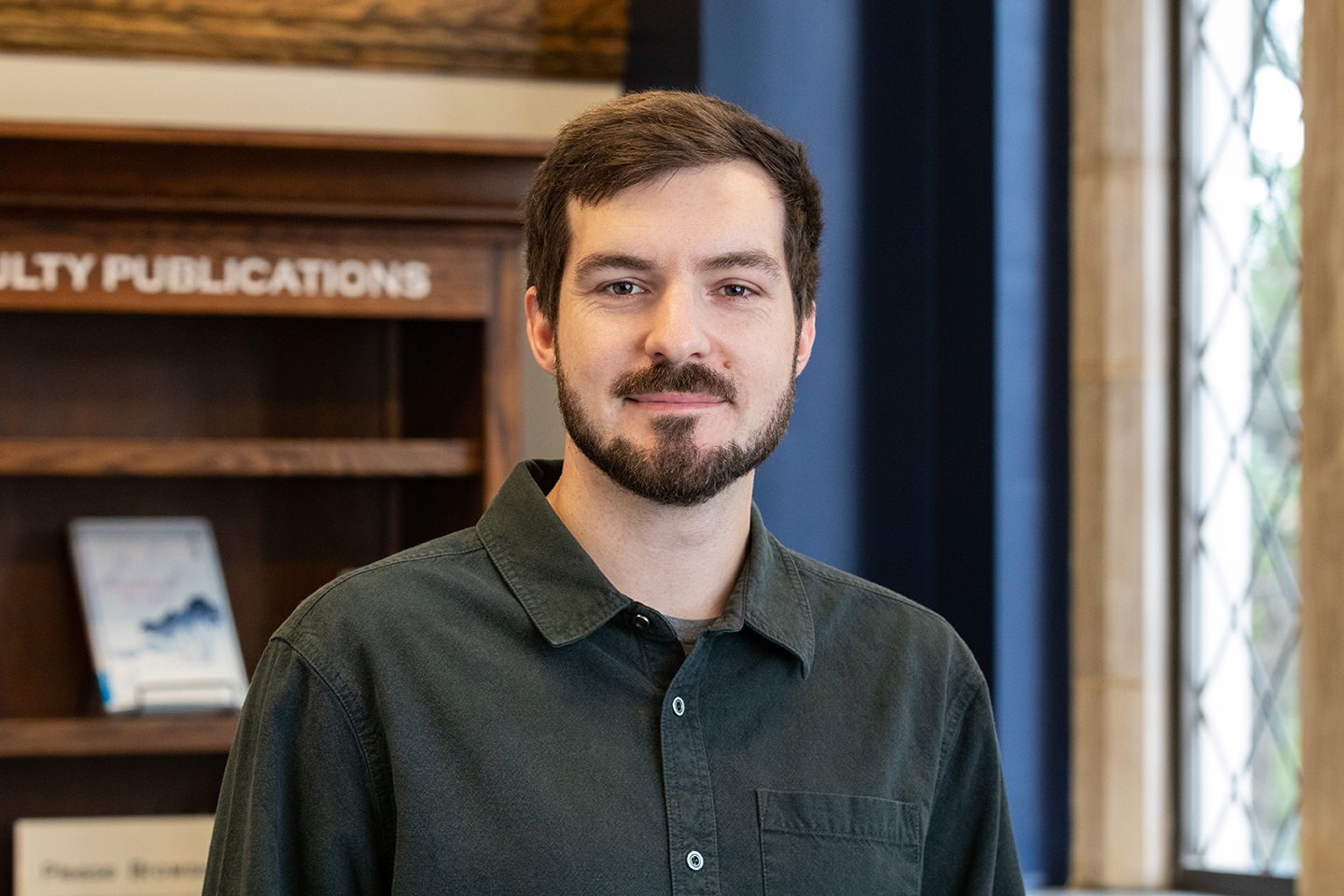
Riley Champine is a resident of Forest Hill and the proud father of a new Richmonder. He is a cartographer and the Associate Director of the University of Richmond Digital Scholarship Lab, where he researches the roots of spatial inequality in American cities using geographic information systems (GIS). He is currently working on a book about Richmond and the maps that shaped the city. He is also the designer and editor of the Forest Hill Flyer, the biannual print newsletter of the Forest Hill Neighborhood Association. You can find Riley riding an electric bike to campus on Grove Avenue, in the stands of City Stadium, or on the banks James near the 42nd Street Entrance.

Rev. Dr. Wayne E. Credle, Jr. is a husband, faith leader, professor, consultant, author, and podcast host whose interests lie at the intersections of faith, leadership, and well-being for his community. He obtained a Ph.D. in Organizational Leadership from Regent University, a Master of Divinity from Duke Divinity School, and a Bachelor of Sociology and Religious Studies from Virginia Wesleyan University. He also earned a certificate in Transformational Leadership & Facilitation from the African Leadership Institute for Community Transformation in South Africa. He is the CEO of Credle LLC, an organizational development and business branding firm for small businesses and non-profit organizations that he leads alongside his wife and college sweetheart, Passion S. Credle, MBA. Dr. Credle is an Adjunct Professor at the College of Health and Behavioral Sciences at Regent University. Dr. Credle also serves as the Director of Operations and Strategic Planning for BlackMalePhds, an organization that encourages Black men to pursue doctoral degrees by providing a space for networking, collaboration, mentorship, and community. Dr. Credle has served in numerous ministerial capacities throughout his career, including the Bahamas Methodist Conference, the National Baptist Convention of Churches, the North Carolina Conference of the United Methodist Church, the Durham Veteran Affairs Hospital and Butner Federal Correctional Complex. Dr. Credle’s publications include Chapel Hill Press, Palgrave/MacMillian, the Journal of Biblical Perspectives in Leadership, and the 5th International Conference on Research in Business, Management, and Economics. Dr. Credle’s podcast (Ministr2Society: The Podcast), which shares stories around faith, leadership, and wellbeing is available on all podcasting platforms.
Bennie Gates, III (Bio coming soon)

Elizabeth Hancock Greenfield serves as the Vice President of Government Affairs for the Home Building Association of Richmond (HBAR), representing the land development and residential construction industry in front of local governments and the Virginia General Assembly. Prior to joining HBAR, Elizabeth led Government Affairs for the Richmond Association of REALTORS® (RAR) for fifteen years. She also served as the Executive Director of the Partnership for Housing Affordability (PHA), RAR’s non-profit.
Elizabeth has a strong background in legislative affairs and works closely with state and local elected officials on issues such as protecting private property rights, land use and zoning matters and affordable housing initiatives.
Elizabeth serves on the Board of Housing Opportunities Made Equal (HOME) and HOME’s Policy Advisory Committee. She is also Vice Chair of the Richmond City Planning Commission.
Elizabeth graduated from Virginia Commonwealth University with a Bachelors degree in Political Science and Master’s degrees in Public Administration and Urban and Regional Planning.
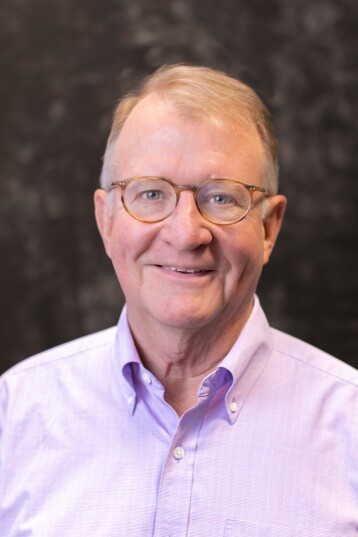
Philip Hart is a lifelong Richmonder and long-time resident of the west end of the city. He is a real estate lawyer and works for Genworth Financial, where, among other things, he handles the legal aspects of Genworth’s facilities real estate matters. In that capacity, he engaged with Henrico County and its zoning consultant during the recent recodification of the county’s zoning code. Philip is active in civic affairs, most recently with the Westhampton Citizens Association (WCA), where he is immediate past president and continues to serve on the WCA’s zoning committee. Philip and other WCA members were actively engaged in the Richmond 300 process.

Preston Lloyd counsels national, regional and local property owners and developers in connection with commercial real estate transactions, especially matters related to land use and zoning, economic development, historic preservation, public finance and local government law in jurisdictions in Virginia. He assists in aspects of the entire development cycle, from negotiating the purchase/sale of land, to site development, financing and leasing. He is the chair of Williams Mullen’s Land Use Practice.
In connection with his diverse land use practice, Preston maintains relationships with local government decision-makers and community leaders. His experience includes obtaining rezonings, special use permits, proffer amendments and other approvals for mixed-use/planned unit developments, retail centers, multi-family and student housing projects, hotels, residential communities, regional mixed-use town centers, data centers, farm wineries and wireless telecommunications facilities. He has assisted regional and national developers in connection with joint ventures and various complex equity and conventional financing structures and has experience with the acquisition, financing and development of multi-family housing intended to qualify for federal low-income housing tax credits. He has represented rural landowners in the drafting and negotiation of conservation easements.
Preston is a leader in promoting the responsible use of land and creating/sustaining thriving communities. He was named the 2014 Young Leader of the Year by the Richmond District Council of the Urban Land Institute (ULI) and formerly served as young leaders group chair of ULI Virginia. He regularly is invited to speak on land use topics, including as a guest lecturer at the University of Richmond School of Law and the Mason School of Business at William & Mary, and in connection with continuing legal education programs.
Preston has been listed in The Best Lawyers in America© for Real Estate Law and Land Use and Zoning Law (2018-present), named among Virginia’s “Legal Elite” by Virginia Business magazine (2016-present) and listed by Virginia Super Lawyers Rising Stars for Land Use/Zoning Law (2017-2021). In 2018, he was named to the 2018 class of Up & Coming Lawyers by Virginia Lawyers Weekly. In 2015, he was named to Style Weekly’s Top 40 Under 40 list.
Preston is active in the RVA community. He serves on the board of directors for CARITAS and the Partnership for Housing Affordability. He was selected by Leadership Metro Richmond, a community leadership development organization, as a member of their 2016 Leadership Quest Class, and was appointed to the advisory council for Richmond 300, the City of Richmond’s APA award-winning master plan update. He was the founding chair of the Young Leaders Society of the United Way of Greater Richmond and Petersburg. Preston also served on Governor-elect Ralph Northam’s Policy Council on Commerce & Trade.
Prior to joining the firm, he served as a summer law clerk in the Norfolk Circuit Court and as a governor’s fellow in the Office of Governor Mark R. Warner. Preston received both his law degree and a Bachelor of Arts degree in politics and history from the University of Virginia.

Eric Mai is a Vice President with HDAdvisors (HDA), an affordable housing and community development consulting firm based in Richmond, Virginia. HDA provides staffing for nonprofit organizations, HousingForward Virginia and Maggie Walker Community Land Trust. HousingForward Virginia (HFV) is a non-partisan affordable housing think tank, where Eric serves as the Executive Director for Strategy & Sustainability. At HFV, Eric leads the Virginia Zoning Atlas, an effort to create an interactive web map of all the zoning districts within the Commonwealth to determine zoning's impact on housing supply and affordability. With Maggie Walker Community Land Trust (MWCLT), a permanently affordable housing developer, Eric serves as Director of Acquisitions. At MWCLT, Eric oversees real estate transactions and predevelopment activities.
Eric received his Masters of Urban and Regional Planning from Virginia Commonwealth University, where he focused his research on affordable housing development in diverse, inner-ring suburban communities. Previously, Eric worked in the field of archaeology for six years in Virginia, while earning his Masters of Archaeology and Heritage Management from the University of Leicester.
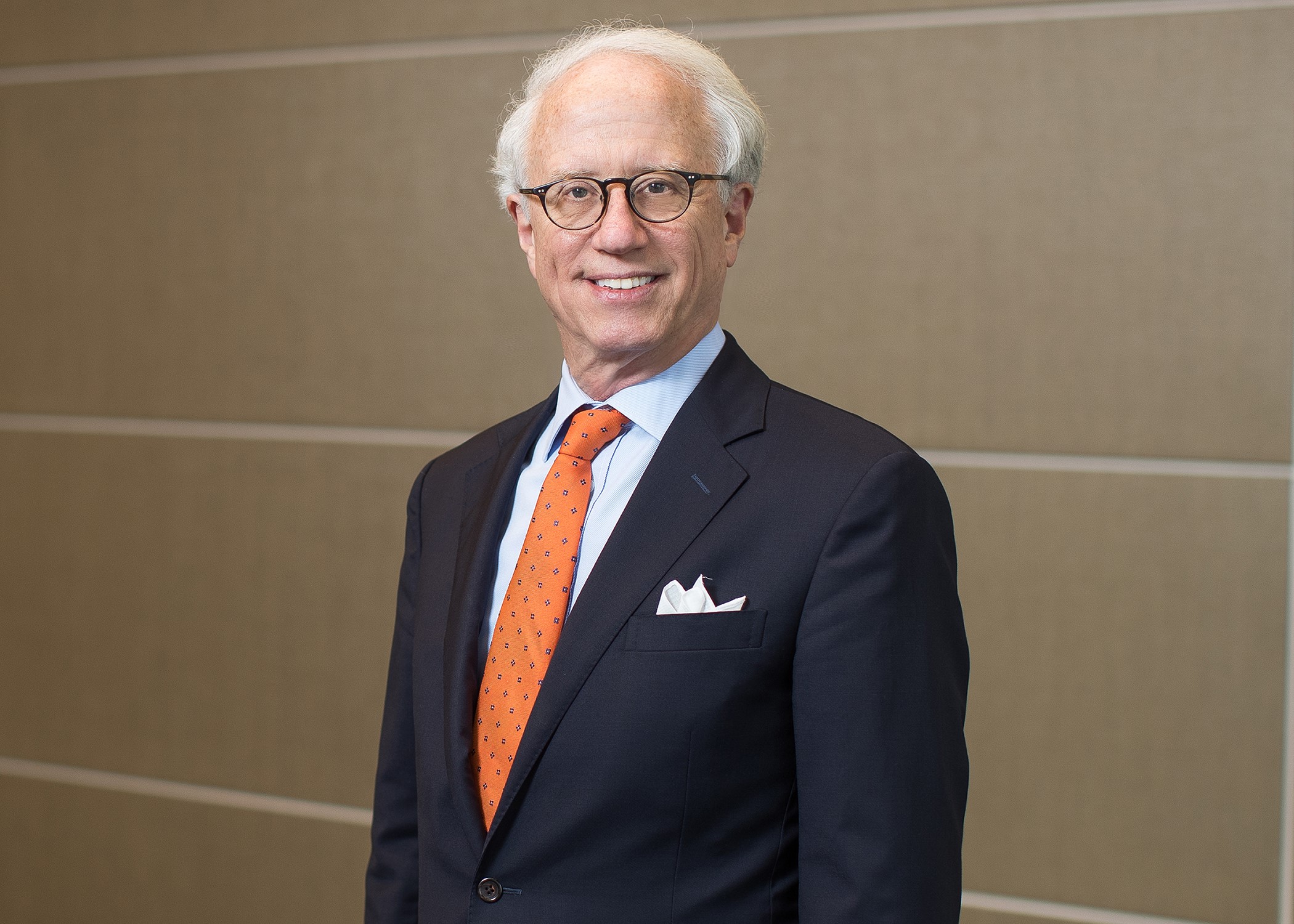
Charles L. Menges is a retired lawyer who practiced real estate law in Richmond for more than 44 years. In his practice, he handled real estate transactions related to affordable housing, senior housing, multifamily housing, hotels, resorts and hospitality, retail, office and industrial properties, landlord-tenant matters, zoning and land use and other real estate matters. He also was extensively involved in debt financing transactions, including financing of real estate projects of various types, asset-based loans, secured and unsecured syndicated loans and loan workouts and restructurings. Charlie remains an active member of various bar organizations, including the American Bar Association Section of Real Property, Trust and Estate Law and Section of Business Law, the Working Group on Legal Opinions Foundation and the Virginia Bar Association Real Estate Section. He has served as a moderator, panelist or lecturer at dozens of national, state and local continuing legal education programs on various topics related to real estate law. Charlie has been active with various civic organizations in the Richmond area. He currently serves on the board of directors and as vice president of Westhampton Citizens Association, where he chairs the Land Use and Development Committee. Charlie received his undergraduate degree from the College of William and Mary and his law degree from the University of Virginia School of Law. He currently serves on a part-time basis as general counsel to Virginia Biotechnology Research Partnership Authority.

Jennifer D. Mullen is a member at Roth Jackson focusing in commercial real estate and land use law. Ms. Mullen represents developers and landowners in the acquisition, disposition, development and financing of residential subdivisions and planned unit developments, office and residential condominiums, office buildings, multi-family housing projects and shopping centers. She routinely represents clients in obtaining zoning, permitting and development approvals, as well as negotiating economic development agreements. Ms. Mullen has also represented a variety of owners in the acquisition, development and construction of multi-family housing intended to qualify for federal low-income housing tax credits.
Ms. Mullen has been named a “Legal Elite” by Virginia Business magazine and a “Rising Star” by Virginia Superlawyers magazine and is in The Best Lawyers in America- Women in the Law. In 2021, she was selected as a member of the VCU Real Estate Circle of Excellence.
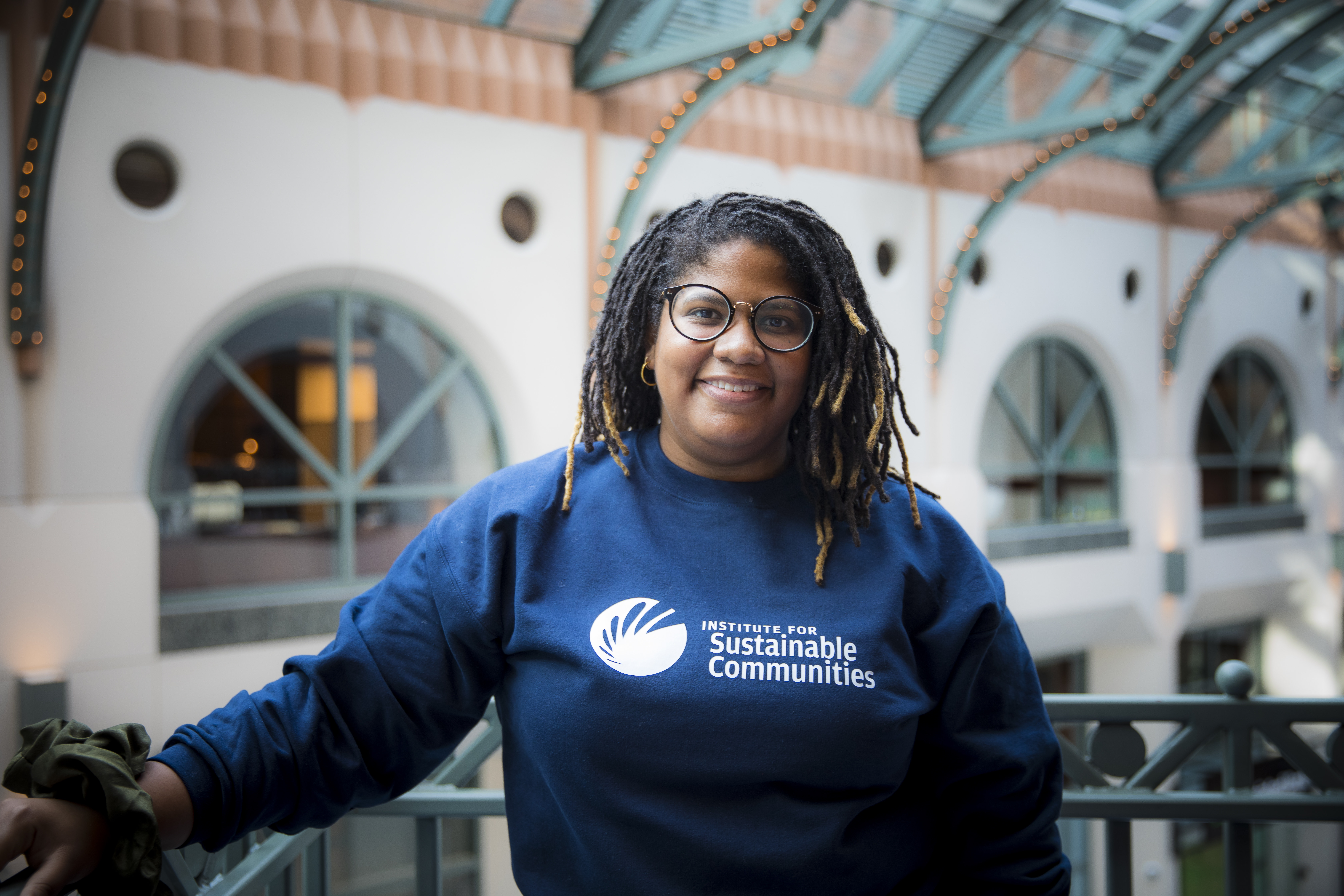
Kendra Norrell is a Senior Program Officer at Institute for Sustainable Communities (ISC). Kendra supports leaders of color, community organizations, and local and regional governments to prioritize and infuse racial equity and climate resilience. She primarily works with Partnership for Resilient Communities (PRC). Prior to joining ISC, Kendra worked as the Community Engagement Coordinator for the City of Richmond’s Office of Sustainability in Virginia. She incorporated community priorities and racial equity in the city’s climate action planning process. Before the City of Richmond, Kendra worked in climate education and engagement with Virginia Commonwealth University (VCU), the GRTC, and Groundwork RVA. She received her B.S. from Haverford College and her M.U.R.P. from VCU.
Casey Overton (Bio coming soon)

Maritza Mercado Pechin - As the Director of Development at Thalhimer Realty Partners, Maritza Pechin oversees mixed-used development projects. Maritza is working on the Diamond District redevelopment, a public-private partnership with the Richmond Economic Development Authority to create a new mixed-used community anchored by a central park and a minor league baseball stadium. Maritza’s career has included roles in the private sector at Fulton Hill Properties and AECOM, and in the public sector at the City of Richmond, VA and the U.S. Department of Transportation. Maritza balances land use planning, real estate markets, and politics to drive transformational projects such as Richmond 300: A Guide for Growth, the Shockoe Heritage Campus, Reconnect Jackson Ward, Maggie L. Walker public art, and Richmond’s City Center redevelopment. Her work has been recognized by the USDOT, American Planning Association, the Urban Land Institute’s Women’s Leadership Initiative, the Richmond chapter of the American Institute of Architects, Richmond BizSense, Style Weekly, and Axios Richmond. Maritza is a graduate of Harvard College and the University of Pennsylvania.
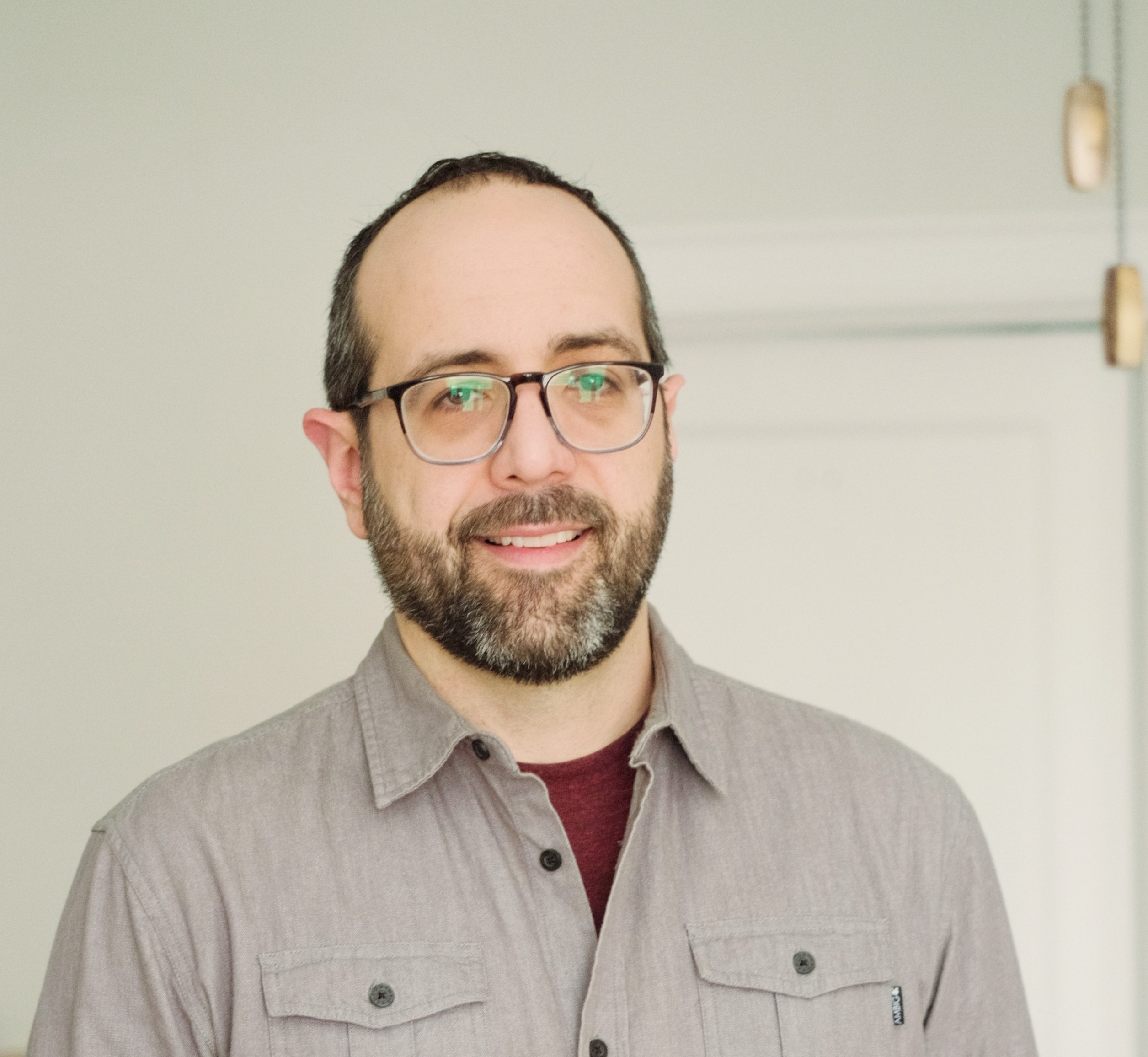
Damian Pitt is an Associate Professor of Urban and Regional Studies and Planning, in the L. Douglas Wilder School of Government and Public Affairs at VCU. He teaches a variety of courses on urban planning and energy and environmental policy. His primary research focuses are on climate action planning and clean energy policy at the state and local level. His numerous academic articles and professional reports include recent studies for The Nature Conservancy and RVA Green.
Pitt is also the Associate Director of Policy and Community Engagement for the VCU Institute for Sustainable Energy and Environment. He has served on the Richmond 300 Master Plan Advisory Commission, and the board of the American Planning Association - Virginia chapter, among other positions. Prior to academia he worked for Cogan Owens Greene in Portland, Oregon.
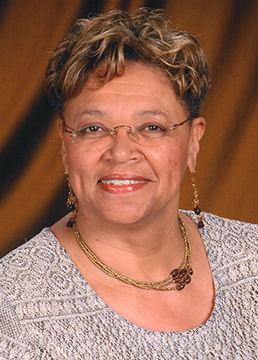
As the 6th District Councilwoman, Ellen Robertson dedicates her service full time to represent the citizens. The 6th District is the most diverse in the City of Richmond. She represents the interest of the highest number of very low-income families living in public housing, the highest level of poverty, the largest share of the first historic neighborhoods, corporate, entertainment, and government downtown district, all bridged by the James River connecting to the restored post-industrial to the new millennial urban core surrounded by post-WWII annexed rural family communities.
Before being elected, after earning a BS Degree in Urban Studies and Planning, Councilwoman Robertson started a community and housing development corporation that provided the down-payment grants to assist first-time home-buyers. More than 300 low to moderate-income families became first time owners. She was the first African American female to serve as Chair of the City's Planning Commission. This background experience prepared her to pass legislation to create the Office of Community Wealth Building - committed to drastically reducing poverty. She also started an Affordable Housing Trust Fund which creates new housing for the working poor and moderate-income.
She has served on countless boards, commissions, and organizations including the Land Use and Transportation Committee, Finance, and Economic Development Standing Committee, Richmond Tourism and Visitors Board, Chair of the Affordable Housing Advisory Board, Chair of the Office of Community Wealth Building Maggie L. Walker Citizens Advisory Board and Chair of the Alternatives to Incarceration Board.
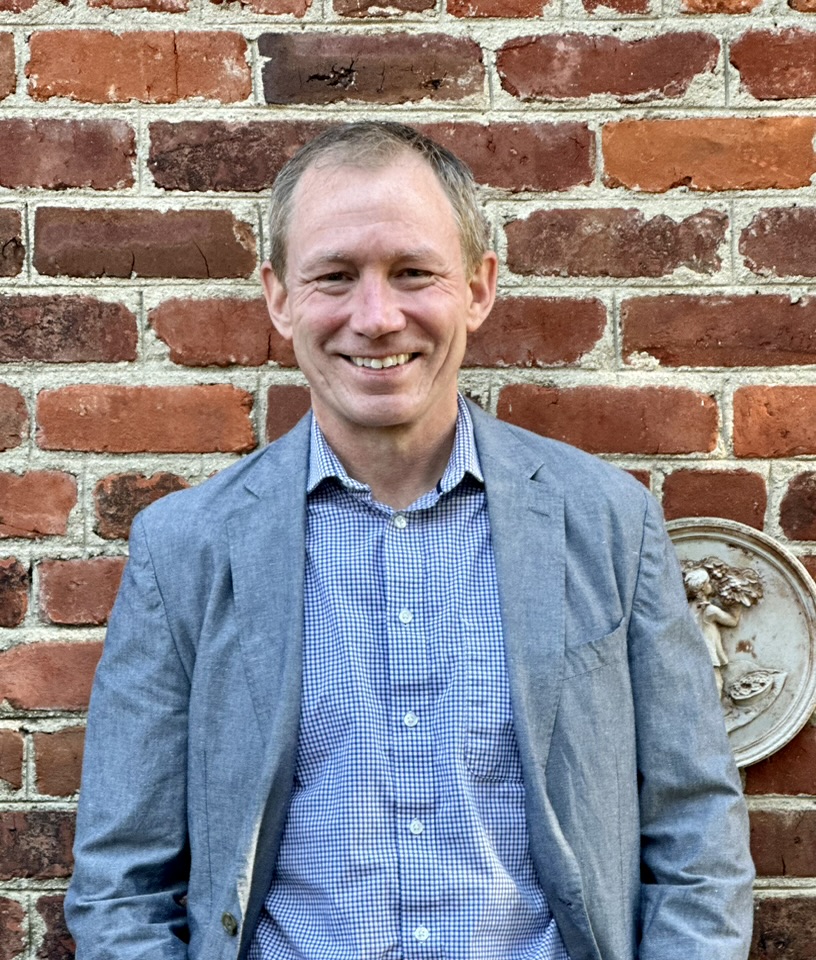
A Richmond native, Brian White graduated from Clemson University with a BS from the School of Business in 1994. A few years after graduating, Brian worked as a Vice President at Bank of America until 2002. He then began working with Historic Housing LLC where he led historic adaptive reuse renovations of 23 properties consisting of 1,501 residential units and 13 commercial offices/retail locations. In addition, he led new construction of six properties consisting of 1,064 residential units and eight commercial offices/retail locations. His housing portfolio consists of a mix of market rate properties and properties dedicated to low-income residents. Brian was a former Board Chair of Communities in Schools of Richmond and former Chair of VCU School of Education Advancement Council. Brian is currently a member of the City’s Planning Commission and a member of the Executive Committee of The Shockoe Partnership.

Charlie Wilson is the Director of Permitting at Baker Development Resources—a local consulting firm that mediates permitting and development processes for landowners, contractors, and developers in the region. He is deeply engrained in not just planning and zoning, but also the processes pertaining to environmental, roadway, utility, construction, and trade permitting. This holistic exposure to development and prior employment in the construction industry allows him to view zoning as a vital piece to a bigger puzzle. Charlie Wilson has both a Bachelor’s (Cornell University) and a Master’s (VCU) degree in Urban Planning. At VCU, his capstone project engaged citizens of Highland County to gauge community preferences for new zoning standards to better preserve its historic towns. Professionally, Charlie has lived in the Highland Park neighborhood since 2017, when he and his partner bought a neglected split-level and brought it back to life. Over the past seven years he has been able to witness both the resiliency of our urban neighborhoods as well as the housing market’s intense response to spiking demand, scarce supply, and inefficient development standards for new construction.
Working groups will assist the Code Refresh Zoning Advisory Council by reviewing elements of the proposed zoning ordinance through the lenses of the five topic areas from Richmond 300. The objective of these working groups is to determine what may be missing or inconsistent with the policies related to each topic area in the Code Refresh. These meetings are open to the public.
| Working Group | Date | Staff Presentation | Notes |
|---|---|---|---|
| High Quality Places | May 5, 2025 | Staff Presentation | Group Notes |
| Inclusive Housing | May 7, 2025 | Staff Presentation | Group Notes |
| Thriving Environment | May 12, 2025 | Staff Presentation | Group Notes |
| Equitable Transportation | May 13, 2025 | Staff Presentation | Group Notes |
| Diverse Economy | May 19, 2025 | Staff Presentation | Group Notes |
| High Quality Places - 2nd Meeting | June 12, 2025 | Staff Presentation | Group Notes |
Get Involved!
Sign up below and follow this page to stay up-to-date on Code Refresh launch events and opportunities to engage and volunteer!







